From January 12 to January 17, 2025, a delegation of 24 undergraduate students from the School of Public Affairs undertook a successful six-day academic exchange tour to the University of Tokyo and the International University in Japan. The program focused specifically on governance experiences across urban and rural settings, exploring the contrasting regions of Tokyo and Uonuma City. Led by Professor Zhang Weiwen, Vice Dean of the School of Public Affairs, and Shen Tian from the Office of International Affairs, the initiative aimed to broaden students' global perspectives, enrich their analytical thinking, and enhance their skills in public management and urban-rural governance.
January 12
On the morning of January 12, the students departed from Zhejiang University traveling to Uonuma City in Niigata Prefecture, Japan. During the journey, Professor Zhang provided an insightful introduction to Japan’s national context, including urban scale, infrastructure, cultural relationships, and land management, as well as efforts and ongoing challenges related to Japan’s aging society. Simultaneously, students organized themselves into working groups, identified tasks, and selected their research topics. Late that evening, the delegation arrived safely in Uonuma City, prepared to engage actively in their study experience.
January 13
In the morning, the students attended a lecture by Mr. Seki Tsuneyuki, President of the Uonuma City Council, at the community hall. Mr. Seki began with a comprehensive introduction of Uonuma, describing its geographical location, environment, demographics, and principal industries. Notably, he emphasized the city's economic development strategies, particularly its famed production of high-quality rice, "Uonuma Koshihikari," widely celebrated as Japan’s best rice.
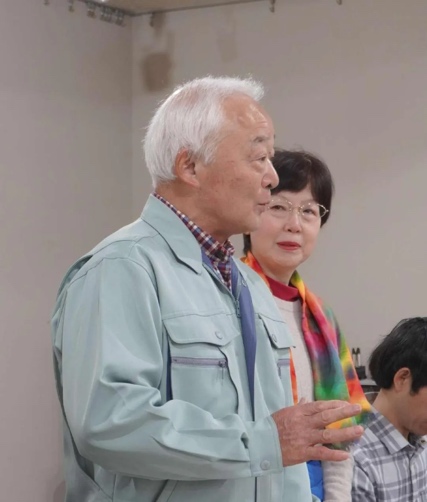

Chairman Seki Tsuneyuki’s engaging presentation sparked great interest among the students. During the exchange session, they actively raised questions on various topics, including Uonuma City’s development strategies, incentive mechanisms for youth participation in agriculture, and approaches to promotion and marketing. The discussion was lively and interactive, fostering a positive and dynamic atmosphere. Through this insightful session, students from the School of Public Affairs not only gained a deeper understanding of Uonuma’s development model but also drew valuable inspiration from Chairman Seki’s personal experiences.

In the afternoon, under the guidance of Professor Xu Chengwei from the International University and former Uonuma council member Mr. Kuroiwa, the students undertook a guided tour of Uonuma City. Mr. Kuroiwa highlighted critical societal issues, such as significant labor migration, demographic imbalance, and mounting pressures on elderly care and social welfare, factors adversely affecting agriculture and local economic growth. Local firms, particularly those in the traditional tourism sector, face operational challenges, with bankruptcies occurring frequently. Additionally, demographic imbalances have led to social issues such as "lonely deaths" and an increasing local suicide rate, highlighting an urgent need for comprehensive solutions. He emphasized that solutions require collective effort among government agencies, businesses, and society at large.
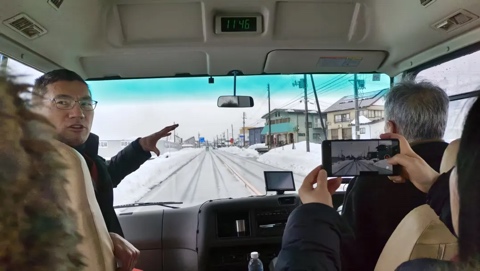

Later, students visited a rice production factory in Uonuma, gaining hands-on insights into advanced agricultural processes and rigorous quality management practices. Through this visit, students gained a more tangible understanding of the exceptional quality of Uonuma rice. They also developed deeper insights into the modernization and meticulous management practices of Japanese agriculture, particularly in the processing and quality control of agricultural products. This experience provided valuable practical knowledge and inspiration for their future studies and research.
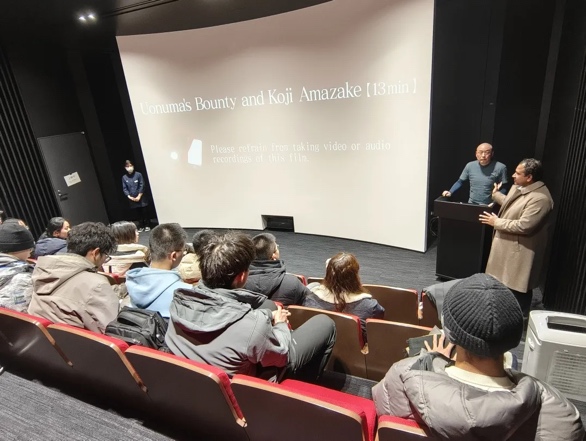

The delegation then arrived at the International University, founded in 1982 and Japan’s first graduate university. The university emphasizes elite, small-scale education, and its graduate schools consistently rank among the top in global academic rankings. Guided by Professor Xu, students toured the university campus, appreciating its environment and surroundings.
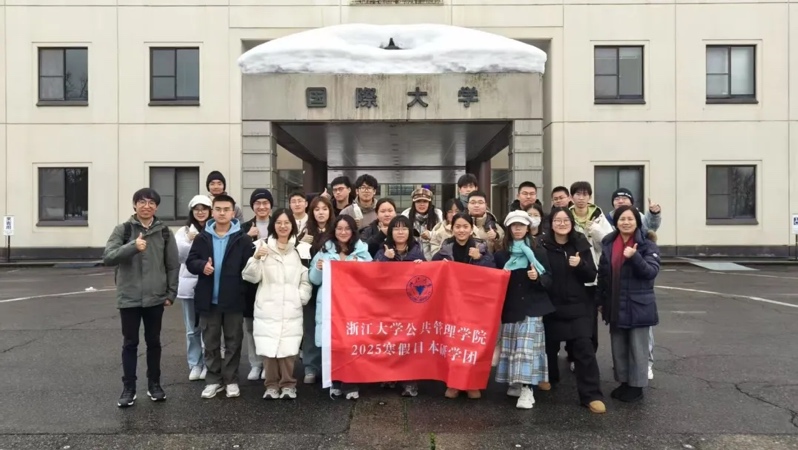
In the evening, they attended a presentation by Mr. Kuwabara, a local civil servant from Uonuma. Mr. Kuwabara detailed Niigata Prefecture’s serious aging population issue, with the elderly population exceeding 40%, substantially above global averages. He also briefly explained Japan’s complex taxation system, divided between national and local taxes, thus providing the students with a deeper understanding of regional administration. This presentation offered students a valuable opportunity to gain an in-depth understanding of the fundamental conditions in Niigata Prefecture.

January 14
On the second day, students visited two manufacturing factories—Maruto Hasegawa and Suwada—in the suburban area of Niigata Prefecture. By comparing these prominent establishments, students explored various facets of the Japanese artisan spirit and craftsmanship.

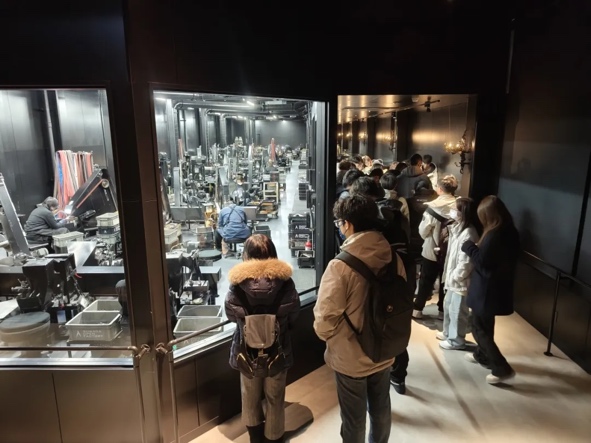
In the afternoon, the delegation returned to the International University to attend a series of lectures delivered by three professors from diverse fields. First, Professor Kure from the International University presented on the topic of “Cascade Tank-Village Systems in the Drought Regions of Sri Lanka,” offering a detailed explanation of the interconnected reservoir-village systems in the country’s arid zones. Next, former city councilor Mr. Kuroiwa delivered a thought-provoking lecture titled “Democratic Apathy in Rural Japan,” questioning the effectiveness of Japan’s democratic institutions—particularly in rural areas—despite being the first democratic nation in Asia. He further analyzed the underlying causes and societal implications of this phenomenon. Finally, Professor Xu Chengwei from the International University shared insights on “The Role of Good Governance in Promoting Development,” drawing on his research and observations to examine the critical importance of effective governance for national and societal advancement in the context of globalization.
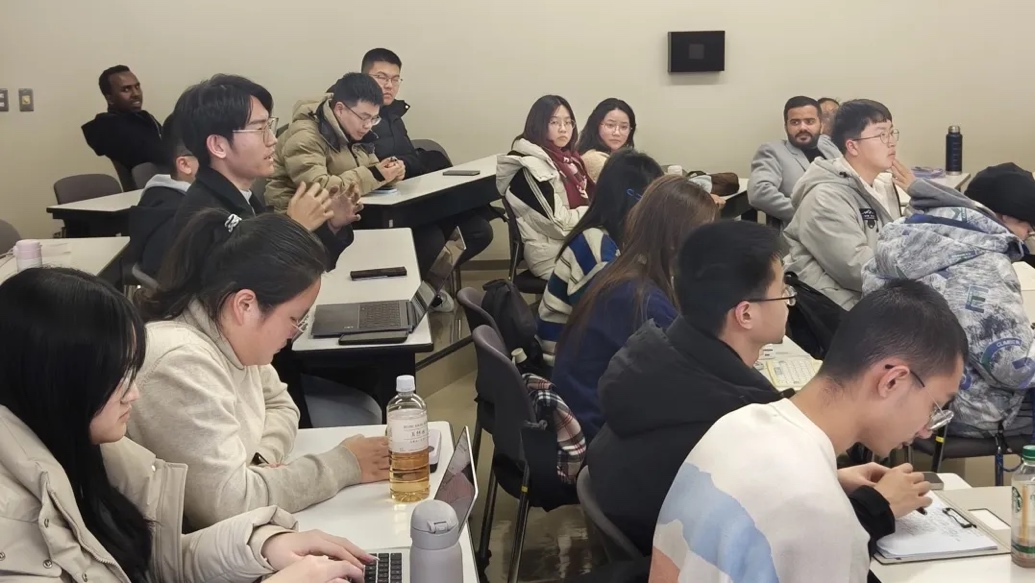
That evening, students participated in interactive workshops alongside International University students, delivering presentations about urban-rural governance models in China. Topics included “Digital Inclusion Models for China's Aging Population,” “Innovative Exemplars of Rural Revitalization,” “Tiger Brother Recycling—China’s Waste Management Model,” “Community-based Elderly Care in China,” “Social Pension Insurance System in China,” and “Land Conflicts and Food Security.” These workshops facilitated mutual understanding and productive exchange of knowledge and ideas.
Following these intense academic exchanges, Professor Zhang convened a debriefing session at the hotel, where students reflected on their field observations and insights related to rural governance. This comprehensive exchange enriched students’ learning and critical thinking.

Amid the intensive exchange activities in Uonuma City, students gained a clearer understanding of the policy orientations and institutional differences between countries. Upon returning to the hotel, Professor Zhang Weiwen organized a timely debriefing session, during which the delegation reviewed and reflected on the rural governance field visits. This exchange provided valuable insights and guidance for the students' future academic pursuits and critical thinking.
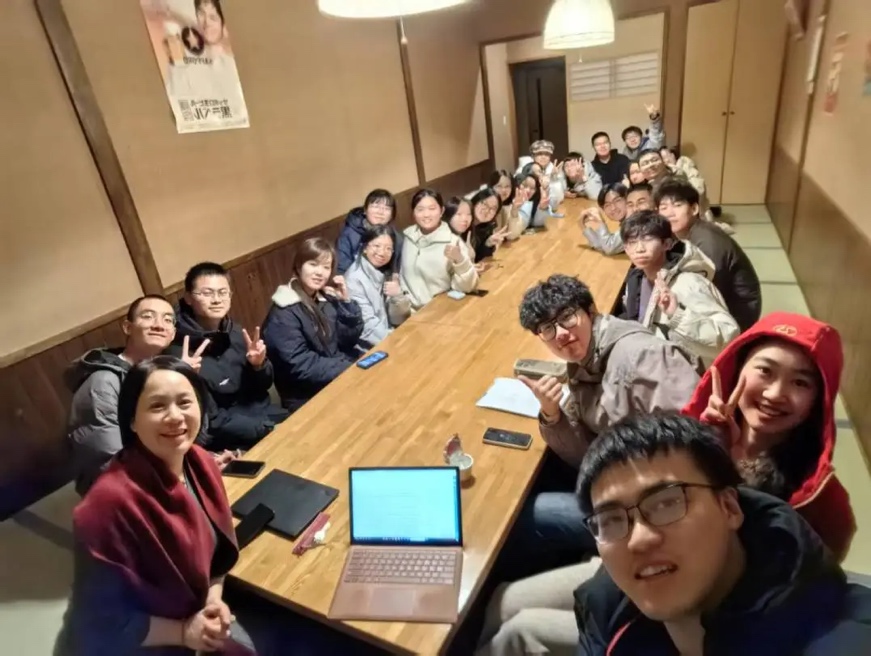
January 15
The delegation departed from Uonuma City and headed to Tokyo, one of Japan’s iconic metropolitan centers. In the suburban area of Saitama Prefecture, students visited the Metropolitan Area Outer Underground Discharge Channel, a massive underground river system designed for urban flood control. This facility is not merely a flood prevention project—it also embodies Japan’s advanced concepts in urban planning and environmental protection. Through this visit, students experienced a world-class flood management system firsthand and gained a deeper understanding of sustainable urban development.

January 16
The students visited the Hongo Campus of the University of Tokyo, immersing themselves in the academic atmosphere and cultural richness of this world-renowned institution. Thanks to engaging introductions by four alumni from the Zhejiang University Tokyo Alumni Association, the group gained a vivid and firsthand understanding of the University of Tokyo’s long-standing history and distinguished achievements. This visit not only broadened the students’ horizons but also deepened their appreciation and respect for higher education across different cultural contexts.
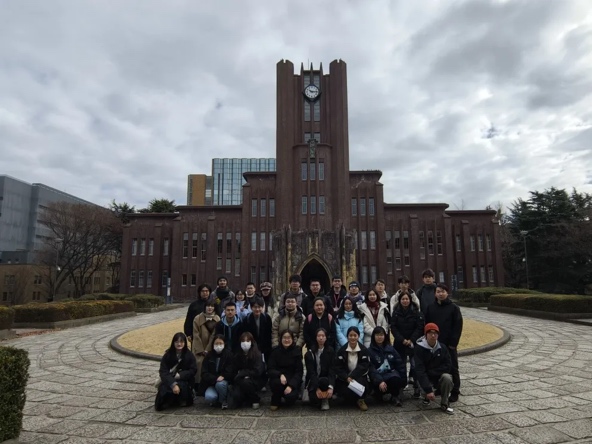
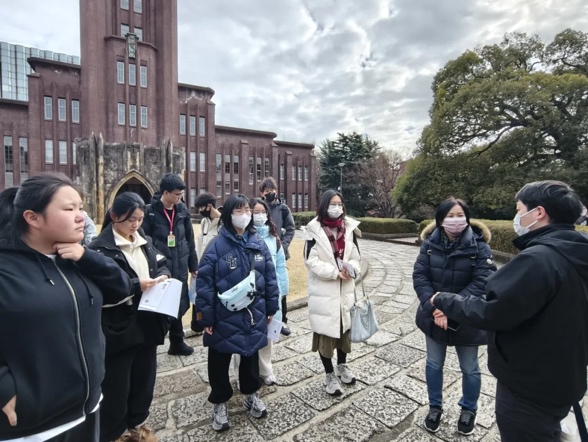
January 17
On the final day of the study tour, the delegation visited the Tokyo Metropolitan Government Building, where they toured key facilities including the Tokyo Olympic Memorial Hall, municipal administrative offices, and the Metropolitan Assembly Chamber. During the visit, students gained a detailed understanding of Tokyo’s governance structure and public service system, deepening their insight into Japan’s administrative model. They also learned about Japan’s legislative process and the functioning of its local parliament. Staff members provided thorough explanations of the assembly’s history, responsibilities, and the electoral process of its members. By visiting the assembly chamber in person, students experienced firsthand the democratic political atmosphere of urban Japan.

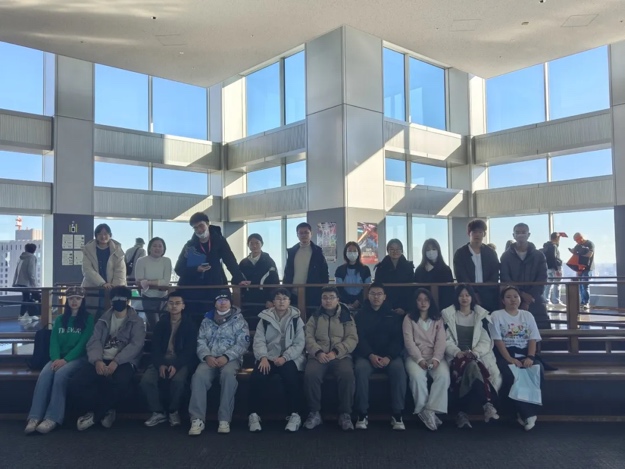
This successful academic exchange tour significantly strengthened the collaborative relationship between the School of Public Affairs and Japanese universities. Moving forward, the School of Public Affairs remains committed to fostering further international cooperation, cultivating students equipped with global perspectives and professional competencies in public management.
Student Reflections
Feng Rui, Class of 2022, Information Resource Management:
“I was deeply honored to participate in this study tour to Japan organized by the School School of Public Affairs. As my first experience abroad, the trip exposed me to many people, places, and cultural elements that I would rarely encounter in everyday life. It offered me a fresh and comprehensive understanding of both Japanese society and various social phenomena in China. Throughout the exchange, I observed numerous cultural details that cannot be found in textbooks. With Japan as a point of reference, I have gained a more profound and multidimensional perspective on certain aspects of domestic society.”
Li Shuo, Class of 2022, Public Administration:
“Whether it was Minami-Uonuma, Kasukabe, or Tokyo, each location left a lasting impression on me. Japan’s approach to urban governance was particularly inspiring, and three aspects stood out the most. First, the development of barrier-free facilities: for instance, at a sake brewery in Minami-Uonuma, an age-friendly elevator was installed beside the stairs, reflecting the brewery’s care and respect for the elderly, as well as its modern and people-centered service philosophy. Second, the remarkable orderliness of urban life: in public spaces such as escalators and train platforms, people automatically line up on the left, and on trains, passengers consciously wear their backpacks in front to avoid inconvenience to others. Third, the thoughtful measures taken to ensure women’s safety: Japan has designated women-only train cars to protect female passengers from sexual harassment and other threats in public transportation.”
Zhu Ying, Class of 2023, Land Resource Management:
“During the summer of 2024, I had the privilege of joining the Yellow Land Project research team in Jiashan County, Jiaxing City, Zhejiang Province, where we conducted fieldwork and visited several local factories to gain insights into the current state and challenges of China’s manufacturing sector. In the winter of 2025, I participated in an international exchange program organized by the School of Public Affairs, visiting three factories in Uonuma City, Japan—Unoma Jozo, Maruto Hasegawa, and Suwada. These two visits to factories in different countries prompted me to reflect on the differences between Chinese and Japanese industrial practices. They deepened my understanding of the contrasts in management styles and workplace culture, as well as the similarities and differences in factory operations and employee relations across the two nations.”
Shi Erden, Class of 2020, Public Administration (Sports):
“During this program, I encountered many new and unfamiliar experiences, among which the unique snow removal facilities in Minami-Uonuma City left the deepest impression on me. I was particularly struck by how the city has effectively leveraged local natural resources in combination with modern infrastructure to develop an efficient and innovative snow-clearing system. This approach is undoubtedly a clever and replicable model. In many northern cities of China, heavy snowfall during winter poses similar challenges for snow removal. How to address these issues more effectively and enhance the efficiency of snow-clearing operations in northern regions is a crucial topic that warrants further research and exploration in the future.”


